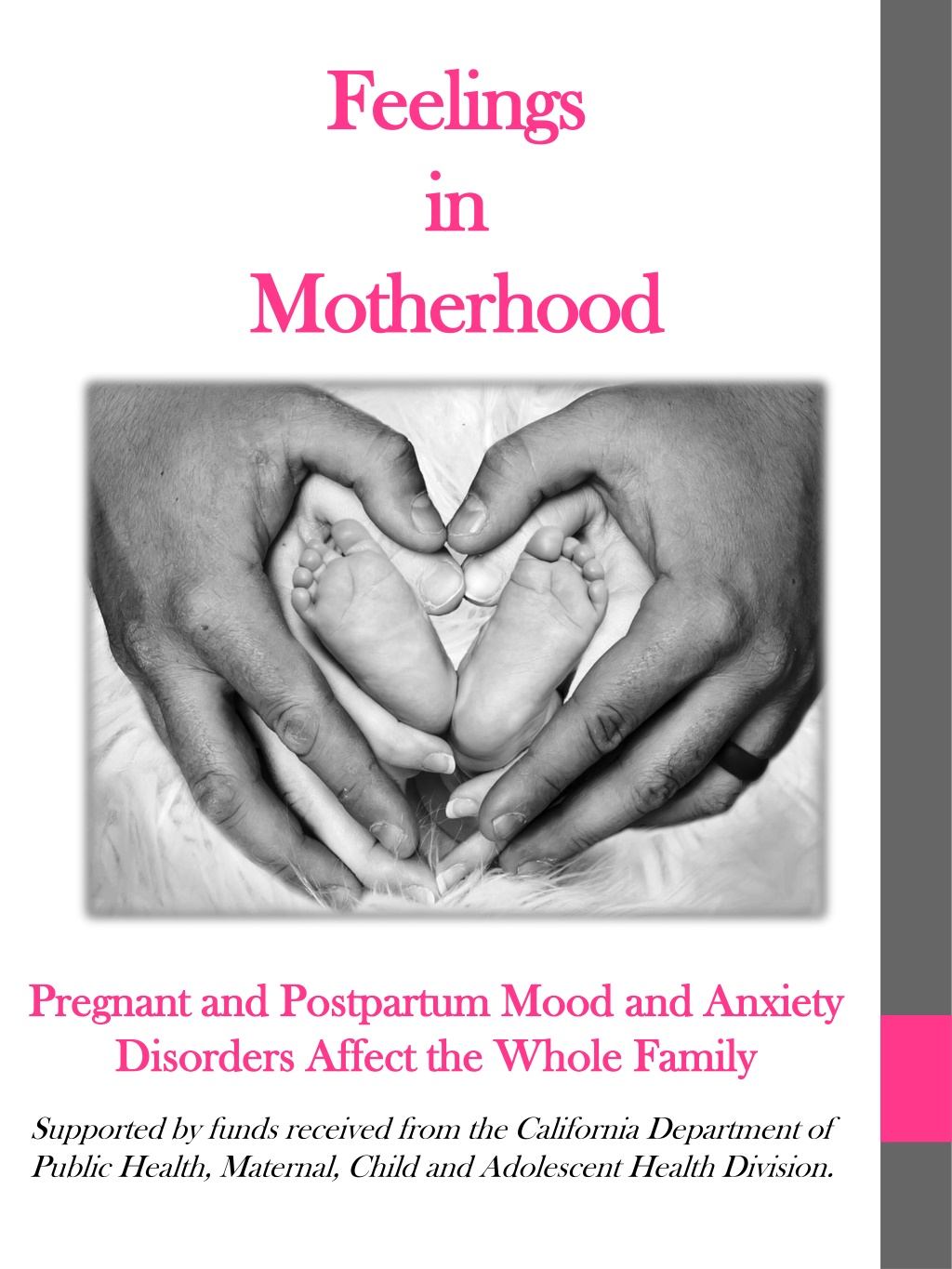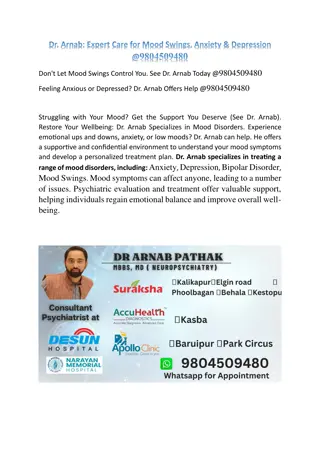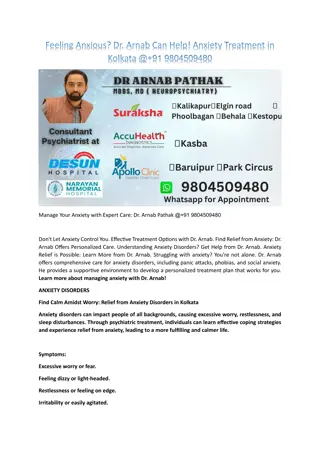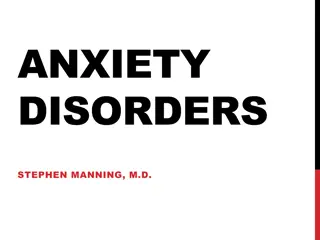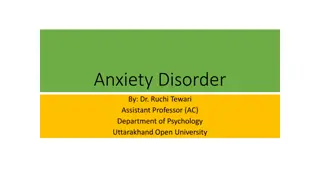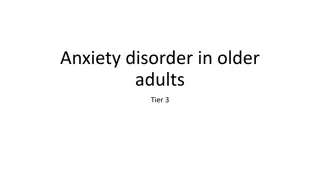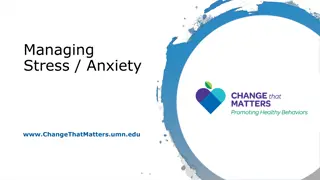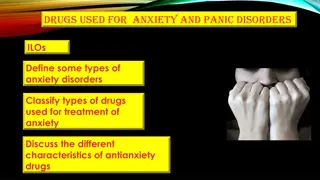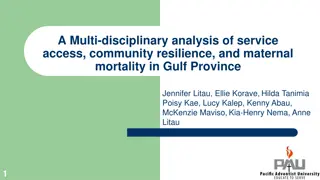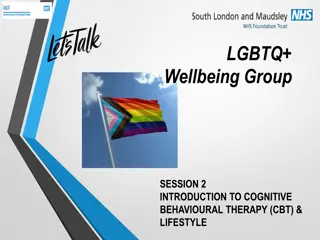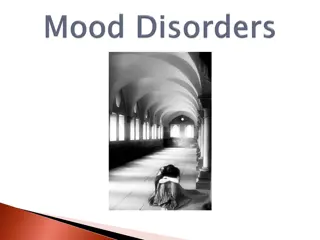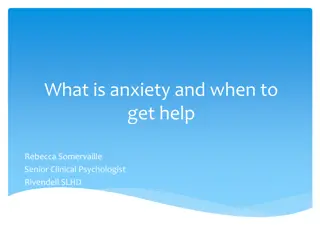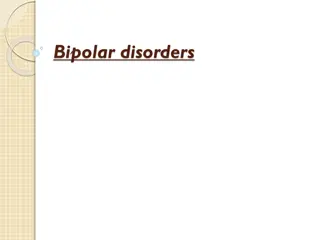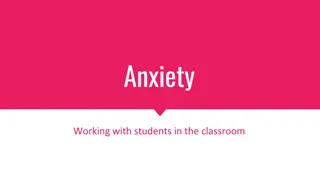Understanding Maternal Mood and Anxiety Disorders in Motherhood
Maternal mood and anxiety disorders can affect mothers during and after pregnancy. Changes in emotions, hormone levels, and life circumstances can contribute to conditions like baby blues, depression, and anxiety. Recognizing the signs and seeking support are crucial for the well-being of both the mother and the family. It's essential to understand these common challenges to provide appropriate care and intervention when needed.
Download Presentation

Please find below an Image/Link to download the presentation.
The content on the website is provided AS IS for your information and personal use only. It may not be sold, licensed, or shared on other websites without obtaining consent from the author. Download presentation by click this link. If you encounter any issues during the download, it is possible that the publisher has removed the file from their server.
E N D
Presentation Transcript
Feelings Feelings in in Motherhood Motherhood Pregnant and Postpartum Mood and Anxiety Pregnant and Postpartum Mood and Anxiety Disorders Affect the Whole Family Disorders Affect the Whole Family Supported by funds received from the California Department of Public Health, Maternal, Child and Adolescent Health Division.
Introduction Introduction Moms may start to feel changes in their emotions anytime during the pregnancy and up to 12 months after they have their baby. It is normal for moms to have high hormone levels during a healthy pregnancy. 24 hours after delivery, hormone levels drop back to where they were before becoming pregnant. Moms may feel different emotions during these times that can be from changes in hormone levels, uneven body chemicals, or simply from things happening in a mom s life. Postpartum Support International Helpline: 800.944.4PPD(4773) www.postpartum.net Moms can feel more sensitive and have mood swings that are high and low. Moms need to know when they may need help, so let s review some common things to watch for during and after pregnancy.
Baby Blues Baby Blues How Many Moms About 8 out of 10 moms get baby blues which are mild mood swings and crying because of the stress of caring for a new baby and hormonal changes in your body. What are the things to watch for? Feeling worried Feeling unhappy Feeling tired or low on energy Postpartum Support International Helpline: 800.944.4PPD(4773) www.postpartum.net What to do? Baby blues are normal and no treatment is needed. Baby blues can last up to 2-3 weeks after you have your baby. This is an important time to ask for support from your friends and family. If it does not go away or you are not able to care for yourself and your baby, you may have something more serious and need treatment.
Depression Depression Depression is the most common problem during and Depression is the most common problem during and after pregnancy. after pregnancy. How Many Moms About 2 out of 10 moms get depression during pregnancy and/or after they have their baby. What are the things to watch for? Feeling angry or irritable Lack of interest in the baby Changes in appetite Sleeping too much or not enough Crying and sadness Feelings of guilt, shame, or hopelessness Loss of interest or pleasure in things you used to enjoy Possible thoughts of harming the baby or yourself These things can start during pregnancy or during the first year after you have your baby Postpartum Support International Helpline: 800.944.4PPD(4773) www.postpartum.net What to do? Depression can be treated. If these things are happening or you experience them in the future, please tell your doctor right away.
Anxiety Anxiety How Many Moms About 1 out of 10 moms get anxiety during pregnancy and/or after they have their baby. Moms can have anxiety alone or with depression. What are the things to watch for? Constant worry Feeling that something bad is going to happen Unable to stop anxious thoughts that are in your mind Changes in appetite Sleeping too much or not enough Not able to sit still Dizziness, hot flashes, and nausea Serious things are feelings of panic and chest pain These things can start during pregnancy or during the first year after you deliver your baby Postpartum Support International Helpline: 800.944.4PPD(4773) www.postpartum.net What to do? Anxiety can be treated. If these things are happening or you experience them in the future, please tell your doctor right away.
Obsessive Compulsive Disorder (OCD) Obsessive Compulsive Disorder (OCD) How Many Moms About 5 out of 100 moms will get obsessive compulsive disorder. What are the things to watch for? Scary images and thoughts that keep happening such as; the thought of hurting your baby These thoughts can come out of nowhere and are not in your control Always feeling like you have to do certain things such as; cleaning, checking, counting, or reorganizing things over and over again Feeling very worried about these thoughts or behaviors Fear of being left alone with the baby Being overly protective of the baby Moms with obsessive compulsive disorder know that their thoughts are strange and are not likely to act on them Postpartum Support International Helpline: 800.944.4PPD(4773) www.postpartum.net What to do? OCD can be treated. If these things are happening or you experience them in the future, please tell your doctor right away.
Postpartum Stress Disorder Postpartum Stress Disorder How Many Moms About 9 out of 100 moms get postpartum post-traumatic stress disorder (PTSD). This type of stress is related to problems from a difficult delivery of the baby or if the mom experienced previous abuse in her life. What are the things to watch for? Repeating thoughts about what happened during the delivery or abuse Flashbacks or nightmares Avoiding people, places, and/or things that remind you of the delivery or abuse Anxiety Unable to sleep Serious things are feelings of panic and chest pain Feeling isolated and that you don t belong Postpartum Support International Helpline: 800.944.4PPD(4773) www.postpartum.net What to do? Postpartum PTSD can be treated. If these things are happening or you experience them in the future, please tell your doctor right away.
Psychosis Psychosis How Many Moms Psychosis is rare, it happens to about 1 or 2 moms out of 1,000. What are the things to watch for? Delusions- you strongly believe something that is not true such as; you believe that God told you to harm your baby Hallucinations- you see or hear things that are not there such as; you see and/or hear angels in your house Feeling very irritated Not able to sit still or pay attention Not able to sleep Paranoid or suspicious Rapid mood swings Not able to talk and share your feelings These things usually start two (2) weeks after you deliver your baby Postpartum Support International Helpline: 800.944.4PPD(4773) www.postpartum.net What to do? Psychosis can be treated, however, it is an emergency. Please call 9-1-1 immediately. If these things are happening or you experience them in the future, please tell your doctor right away.
Tips on Staying Well Tips on Staying Well Please don t be afraid to ask for help, you are not alone. These changes are common and can be treated. Get support from family and friends. Dads can have emotional changes too, and may need help and treatment. It is important to be there for each other. Talk to a counselor or doctor who understands what you are going through. Don t give up! It may take more than one try to get the help and treatment you need. Join a support group in your area or online. Keep active by walking, or any exercise that makes you feel better. Try to sleep for at least four (4) hours at one time each day; this will help you to think clear and feel like yourself. Rest when your baby rests. Eat a healthy diet every day. Drink eight (8) glasses of water every day. Keep taking your prenatal vitamins every day. Postpartum Support International Helpline: 800.944.4PPD(4773) www.postpartum.net
Riverside University Health System Riverside University Health System Public Health Department Public Health Department Public Health Nursing/Maternal Child Public Health Nursing/Maternal Child & Adolescent Health Department & Adolescent Health Department Postpartum Support International Helpline: 800.944.4PPD(4773) www.postpartum.net
